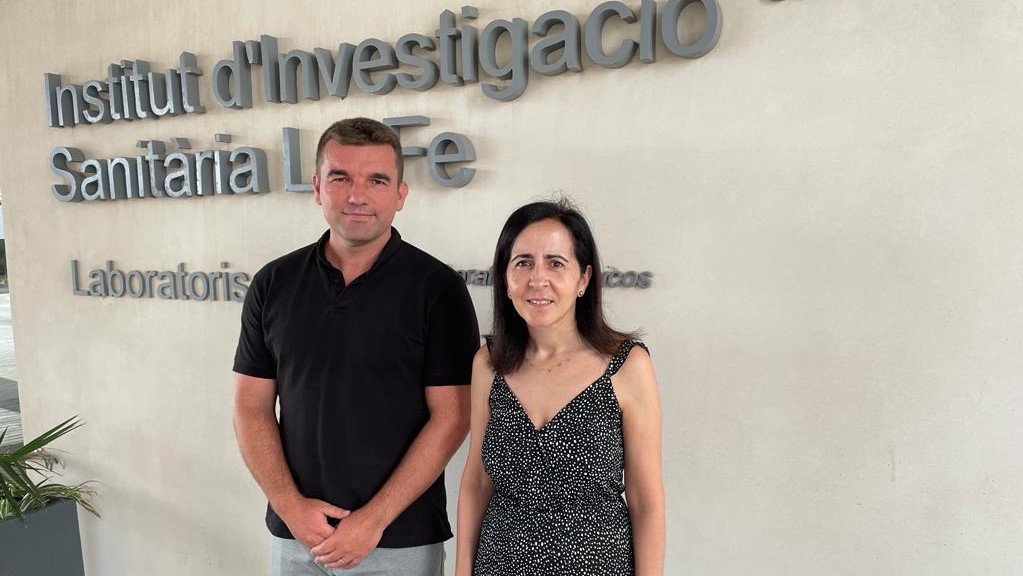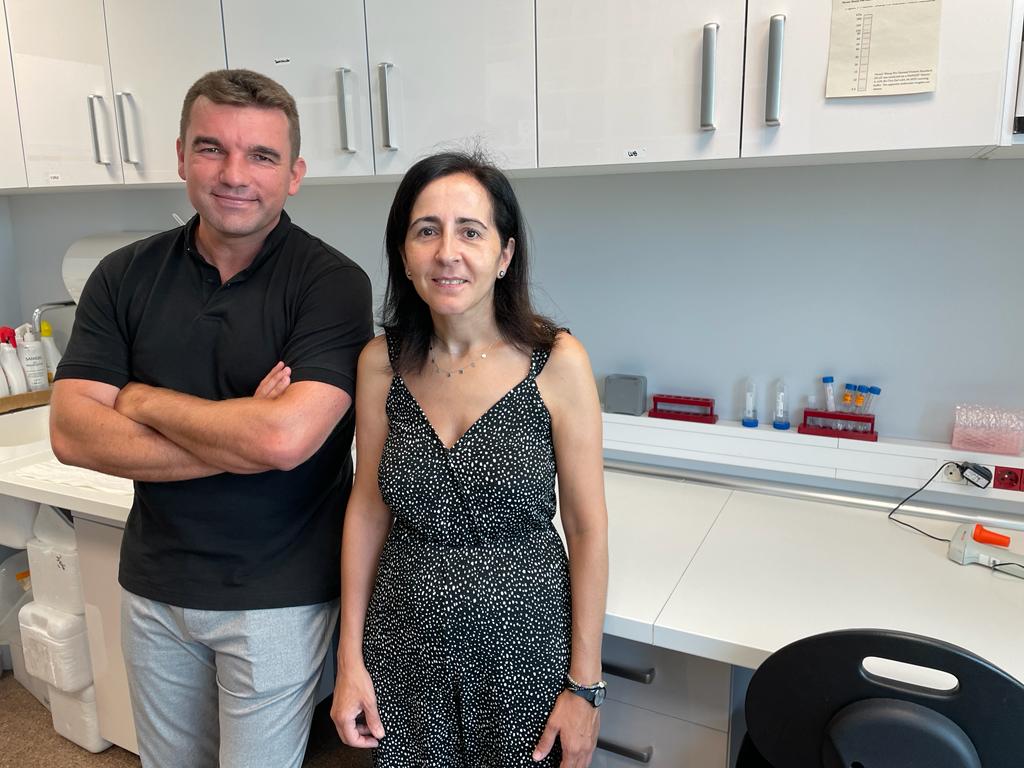News
The IIS La Fe receives 3 grants in the latest call for Knowledge Generation Projects of the State Plan for Scientific and Technical Research and Innovation 2022
These include two individual projects on hereditary myeloid neoplasms and lung cancer, and one coordinated project on precision medicine in cardiology.

The Call for Knowledge Generation Projects of the State Plan for Scientific and Technical Research and Innovation aims to fund the execution of research projects directed at both promoting the generation and significant advancement of scientific knowledge and well-established research quality, as well as progressing towards finding solutions to societal challenges.
The projects from IIS La Fe selected by the State Research Agency are as follows: "Functional Characterization of Germline Variants in Hereditary Myeloid Neoplasms (GERMVAR)," led by Dr. Alejandra Sanjuán from the Hematology and Hemotherapy research group; "Multiomic Approach to Identify Predictive Biomarkers and Reverse Osimertinib Resistance Mechanisms in EGFR-Mutated Lung Cancer (OMICOSIR)," directed by Dr. Juan Sandoval from the Biomarkers and Precision Medicine Unit; and "Virtual Clinical Trials (in silico) for Precision Medicine in Cardiology (PCarTrials)," to be overseen by María Teresa Izquierdo from the Clinical and Translational Cardiology Research Group.
Functional Study of Genetic Variants in Hereditary Myeloid Neoplasms
Hereditary myeloid neoplasms have been recognized by the World Health Organization as a distinct clinical entity. They are present in approximately 10% of children and adults with myelodysplastic syndrome (MDS) or acute myeloid leukemia (AML). These neoplasms are characterized by clinical heterogeneity and variable disease presentation over time and in degrees.
In recent years, hematologists from the Hematology and Hemotherapy Research Group have made significant efforts to enhance the diagnosis and treatment of patients with hereditary myeloid neoplasms. The current aim of the group is to take a step further by implementing functional studies to investigate specific hereditary genetic variants detected in molecular studies conducted on these patients.
When analyzing the results of sequencing studies, interpreting variants becomes complex, and distinguishing between pathogenic and benign hereditary variants often proves challenging. While clinical guidelines and computational algorithms exist to predict variant pathogenicity, definitive testing requires functional studies. Dr. Alejandra Sanjuán explains that "these studies will be conducted through this project, for example, for variants identified in the SAMD9 and SAMD9L genes and for other variants that may be identified in new molecular studies conducted by the Hematology and Hemotherapy Research Group."
The research team will recreate selected genetic variants in hematopoietic cell lines and subsequently in primary hematopoietic cells using CRISPR/Cas9 genetic editing technology to study these disease models through in vitro assays.

Multiomics and Biomarkers to Overcome Osimertinib Resistance in EGFR-Mutated Lung Cancer
Lung cancer ranks as the fourth leading cause of death worldwide and is the leading cause of cancer-related deaths in Spain, where a person dies from lung cancer every twenty minutes. In 2020, over 20,000 individuals succumbed to this disease, a number projected to rise in the coming years, particularly among women. The reasons for this high mortality are diverse, including delayed diagnosis due to lack of symptoms, high invasiveness, emergence of treatment resistance, and absence of molecular biomarkers guiding more effective patient-specific treatment.
In recent decades, targeted therapy-treatment that acts on specific genes and proteins involved in the growth and survival of cancer cells-has emerged as one of the most promising approaches in the fight against cancer. In lung cancer, the epidermal growth factor receptor (EGFR) is a protein frequently mutated, aiding cell growth and division. Hence, drugs called EGFR inhibitors have been developed in recent years, which can block its growth signal. The most novel and third-generation inhibitor is osimertinib.
This targeted therapy has increased patient response rates. Unfortunately, not all patients respond to treatment in the same manner, and within 1 to 2 years, tumors often become resistant to this therapy, leading to limited subsequent treatment options. Dr. Juan Sandoval, in charge of this project, explains, "We aim to, on one hand, identify global epigenetic profiles in both tissue and liquid biopsies (blood) from lung cancer patients, indicating therapeutic benefit from osimertinib. On the other hand, we intend to discover 'epigenetic switches' through in vitro and in vivo models that deactivate cancer cells and restore their sensitivity to osimertinib." This dual approach could aid medical decision-making, enhance the efficacy of targeted therapies, and open new avenues for pharmacological research (combining with epigenetic drugs) in lung cancer treatment.
Cardiology and In Silico Clinical Research
The overarching goal of the coordinated project "Virtual Clinical Trials (in silico) for Precision Medicine in Cardiology (PCarTrials)" is to develop, validate, and test tools for conducting in silico clinical trials for precision medicine. This involves utilizing populations of electro-physiological (EP) and electro-mechanical (EM) models, as well as specific patient models, to predict arrhythmia occurrences and evaluate the efficacy and safety of personalized therapies. These tools will be leveraged to derive new biomarkers useful for risk stratification and evaluating efficacy and safety.







